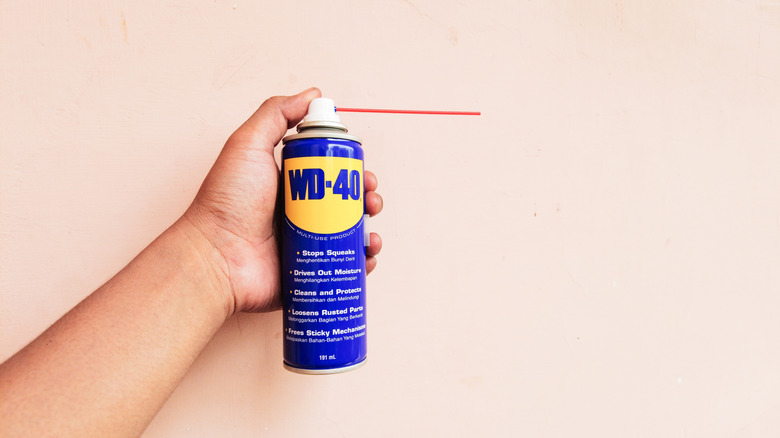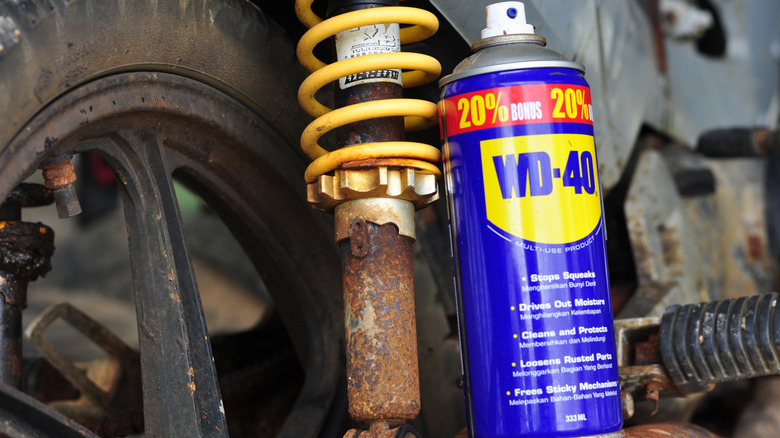What Does WD-40 Stand For?
WD-40 is the king of versatility. Speaking in the broadest terms, it is a lubricant, but that covers a lot of ground. It is useful as a cleaner, insect repellent, and its rust-preventing power makes it arguably the best kind of oil for rock saws and other tools. You might think that the number 40 in the product's name indicates its 40 different uses, but it is actually way more versatile than that. The company itself has a list of over 2,000 uses for WD-40, which range from removing glue from leather surfaces and protecting shower grout from mildew to loosening stuck locks on parking meters and removing crayon from ceramics.
In reality, the name WD-40 stands for "Water Displacement, 40th formula," according to the brand. It's a practical name to be sure, but you can see why they went with the short form. In fact, the branding and marketing of WD-40 has been so successful that it can now be found in almost every American household.
The first two words in the name, "Water Displacement," refer to the original intended function of WD-40, which was to prevent rust formation, which results when water is in prolonged contact with metal. As for the "40th formula" part of the name, it stands as a testament to the incredible perseverance it took to develop the product. Thirty-nine times its inventor tried and failed to achieve his goal, but it turns out the 40th time was the charm.
The invention of WD-40
WD-40 was invented in 1953 as the flagship product of the San Diego-based Rocket Chemical Company. Founded by Norman Larsen, Gordon Dawson, and John Gregory, who were also its only employees, Rocket Chemical was a startup before the concept of startups even existed. Of the trio, Larsen is the one most often credited by the press with inventing WD-40, but the company's website attributes it to all three staff members.
The original intent behind WD-40 was to create an effective rust-prevention formula for use in the aerospace industry. The first commercial use of the product was by Convair, an aerospace company, which used it to prevent rust from forming on the Atlas missiles, the first group of intercontinental ballistic missiles ever made by the United States. However, people soon caught onto the fact that WD-40 was good for a whole lot more, and it was then made available to customers everywhere, now in a spray can created by Larsen.
It took the founders of Rocket Chemical 40 attempts to perfect the formula for their lubricant, but little is known of the first 39 efforts. In fact, even modern WD-40 is shrouded in secrecy. The formula is a company secret, stored under lock and key in a bank vault. WD-40 hasn't even been patented, because doing so would require divulging too much information about its ingredients. There's no longer just one formula either, as WD-40 has expanded to have multiple variations, including a silicone lubricant.

